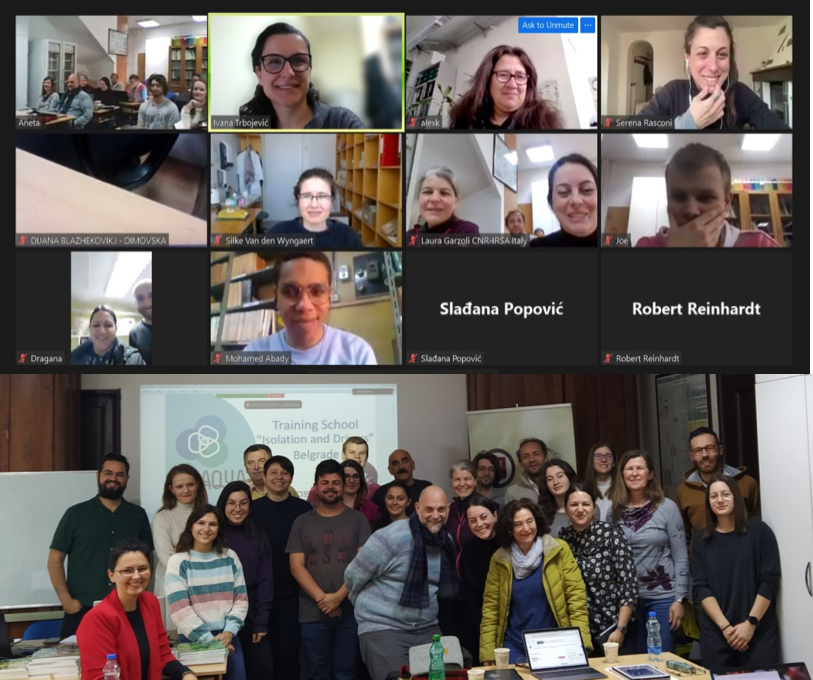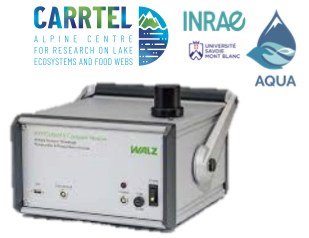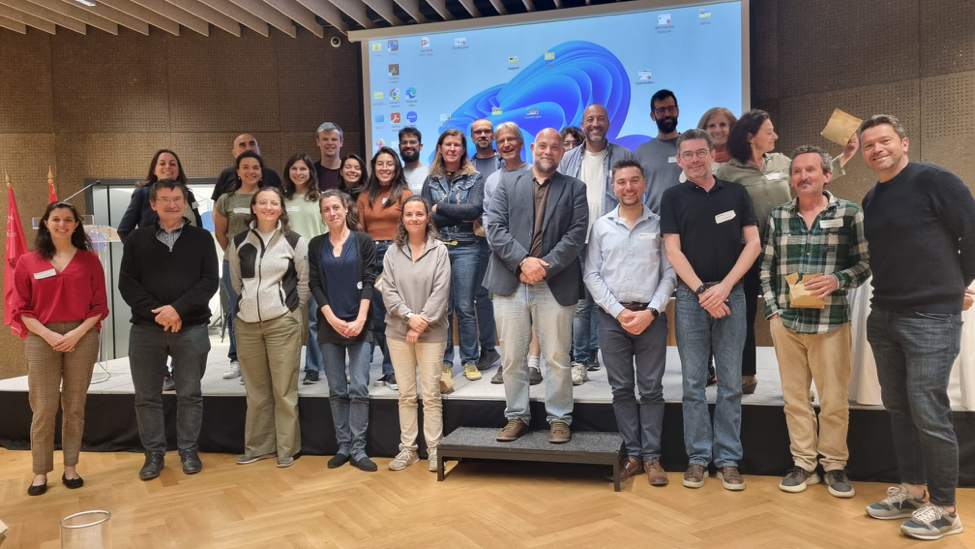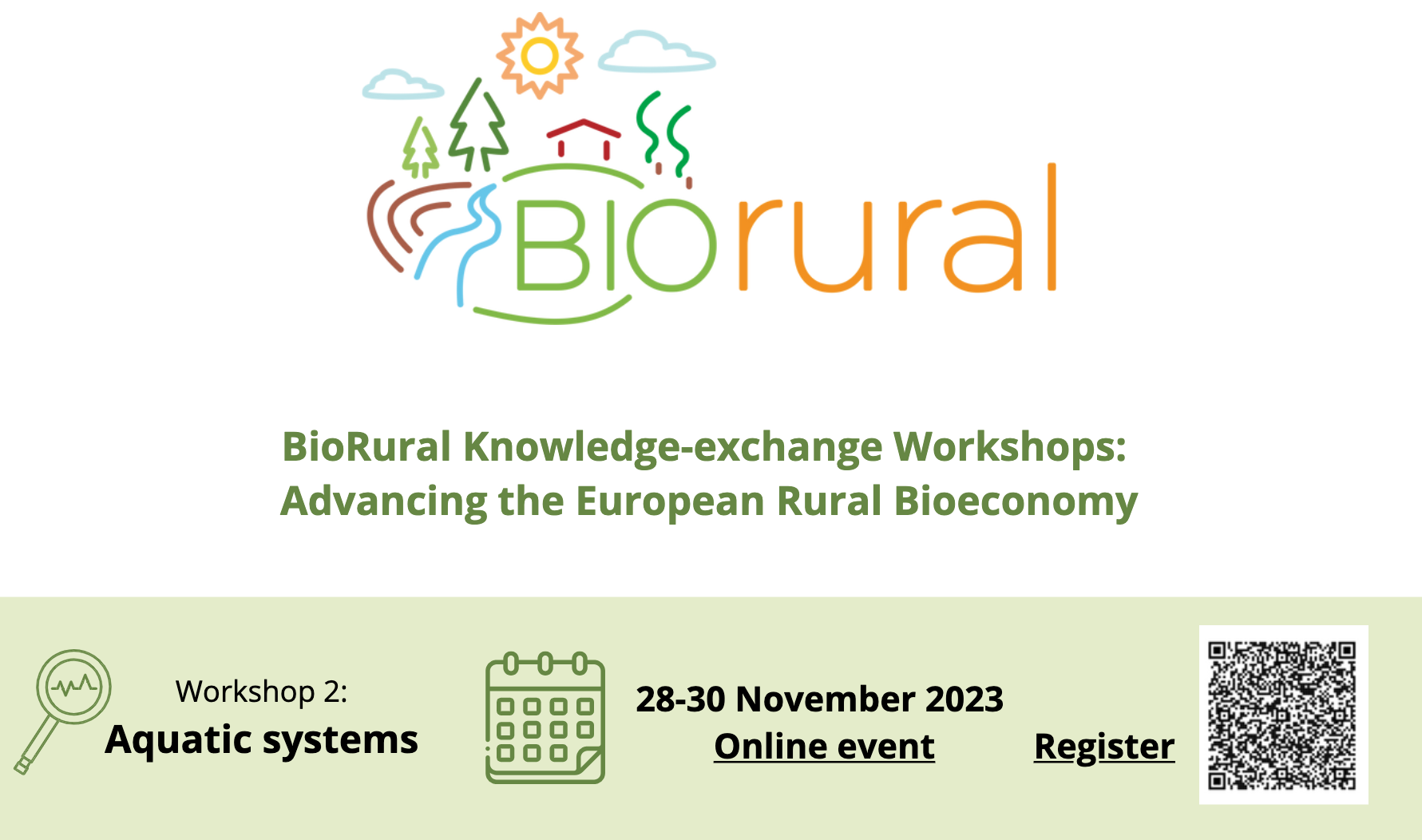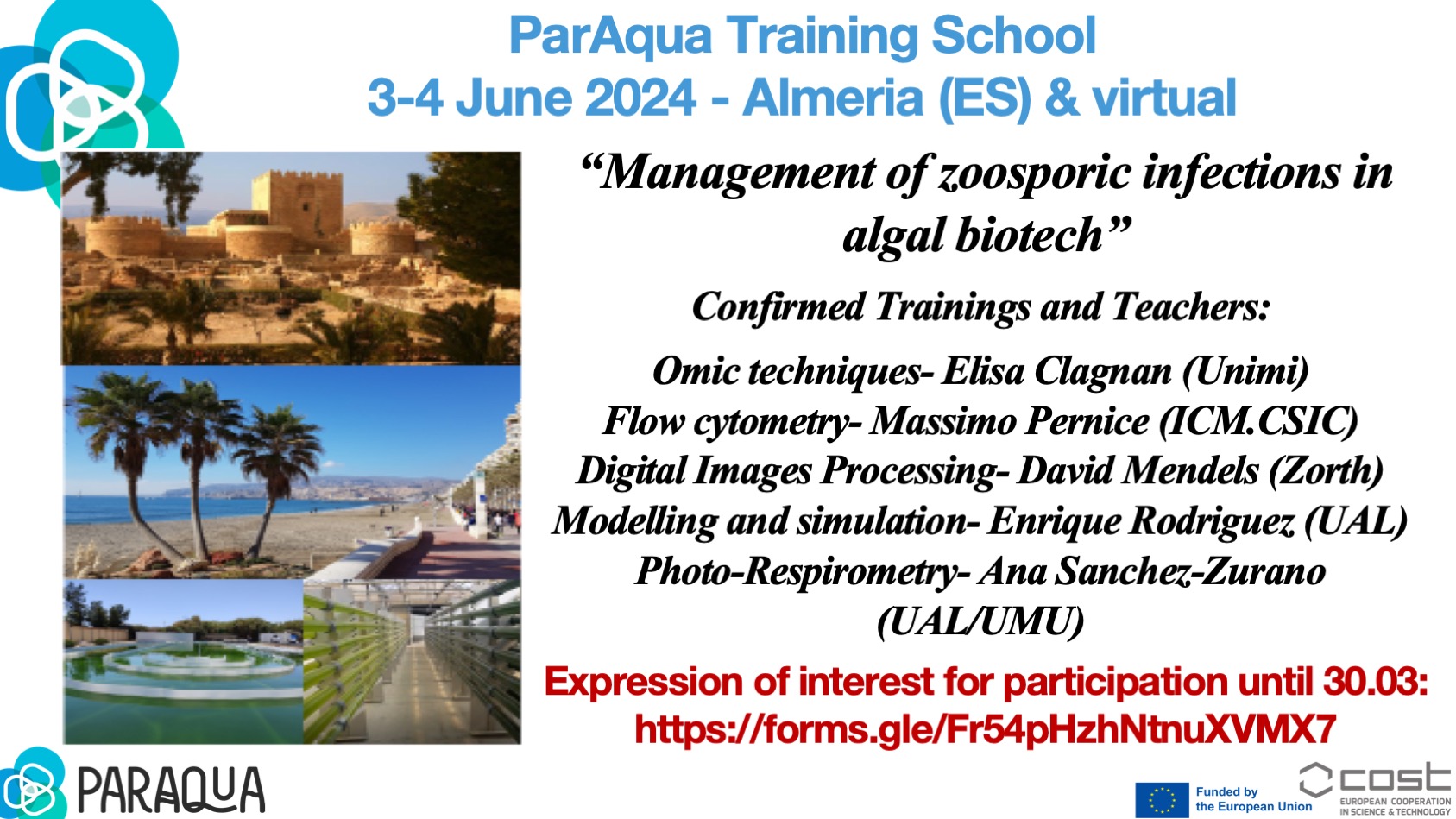Hybrid: University of Belgrade, Faculty of Biology, Institute of Botany and Botanical Garden “Jevremovac”, Belgrade, Serbia & online, April, 3rd– 4th 2023
Starting with December 2022, activities related to the Training School “Isolation and Drivers” officially were launched by announcing the Call for teachers. The call was publicly announced at the ParAqua website and social networks, the interest for participation was good and finally the list of teachers was completed by 31st Dec, covering all the main topics of the Training School:
• Isolation of zoosporic parasite strains and their characterization
• Algal-parasites cultivation (micro and macro-algae, cyanobacteria) and conservation for culture collection
• Methods to investigate drivers of zoosporic parasite infections,
by lectures and/or laboratory trainings offered by recognized experts coming from both academia and industry environments.
Following conceptualization of the preliminary program, in January we announced the Call for trainees, and after careful and dedicated section process, by the mid of the February the list of approved applications was established and all the participants have been informed and invited to the Training School “Isolation and Drivers” in Belgrade. Final list counted 34 participants in total, out of which 9 teachers (7 onsite and 2 virtual) and 25 trainees (8 virtual and 17 onsite). We had 19 participants from the group of young researchers and 26 from ITC and 2 NNC.

Program of the Training School “Isolation and Drivers” was organized from 9am to 6 pm on 3rd- 4th April 2023 in the facilities (lecture room and laboratory) of the University of Belgrade, Faculty of Biology, Institute of Botany and Botanical Garden “Jevremovac”, Belgrade, Serbia & online. Besides local organizer (Ivana Trbojevic, University of Belgrade, Faculty of Biology, Serbia), conceptualization and organization of this event was strongly supported by external organizers Hans-Peter Grossart (IGB, Germany) Silke Van den Wyngaert (University of Turku, Finland) Albert Reñé (ICM – CSIC, Spain) and Action Chair Serena Rasconi (INRAE CARRTEL, France).
First day was dedicated to the topic Isolation of zoosporic parasite strains and their characterization. TS was opened by welcome note given by local organizer and co-organizer Ivana Trbojević and Miloš Stupar, and followed by the set of lectures given by Jurica Jug-Dujaković ( Sustainable Aquaculture Systems L.t.d., USA, now reprentative in Croatia, advisor at M.J.D. Consulting d.o.o., Croatia), Ana Gavrilović (University of Zagreb Faculty of Agriculture, Croatia) and Gabriel da Cunha Bombo (GreenCoLab, Portugal) covering the main principles of microalgae cultivation, design, construction and optimization of microalgae farming systems, contaminants and parasites affecting algae culture: Identification, isolation and possible solutions and very important and debatable topic of algae in circular bioeconomy including regulatory framework. Each lecture was followed by fruitful discussions of both onsite and virtual participants. After lunch, Silke Van den Wyngaert (University of Turku, Finland) presented an excellent “survival kit for isolation, cultivation and basic characterization of parasitic chytrids of phytoplankton, drawn from personal experiences”. Our dear colleagues from České Budějovice (Biology Centre CAS, Czech Republic) Caio Cesar Pires de Paula and Dagmara Sirova gave the introducing lecture on occurrence of zoosporic fungi in aquatic systems and main reasons to isolate them and followed by very interesting hands-on session in the laboratory – providing an overview regarding methods to collect samples in aquatic systems to isolate zoosporic fungi.
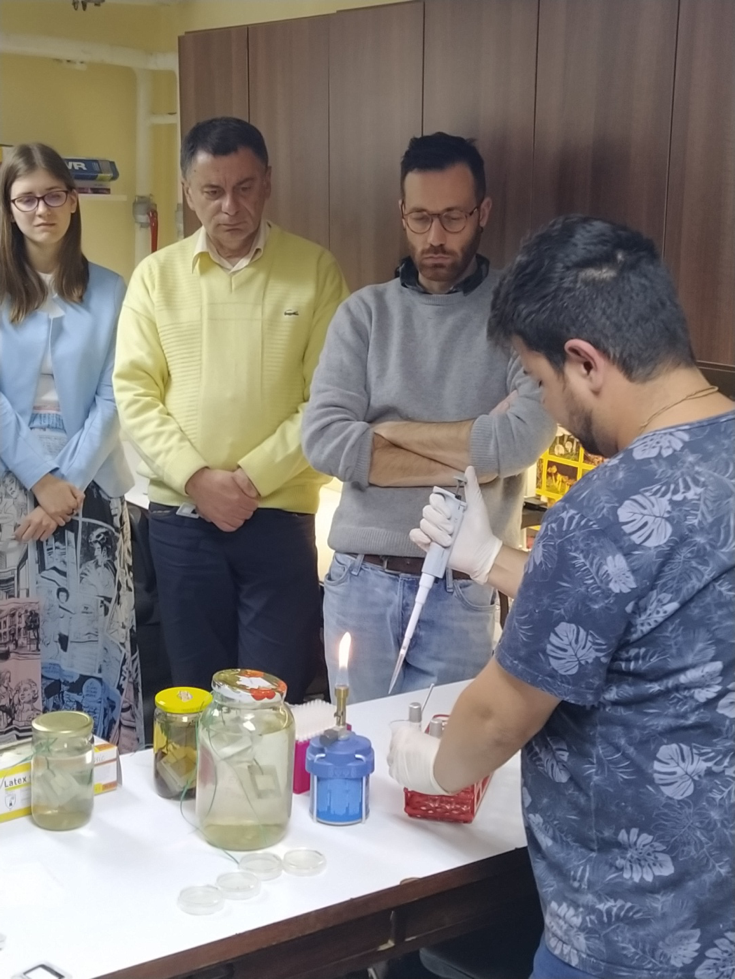
Second day of TS in Belgrade started with snowstorm, which of course nobody expected in April, but besides few logistic problems (such as public transportation and lack of appropriate clothes) it brought us also joy – particularly as some of our colleagues have seen snow for the first time in their lives 🙂
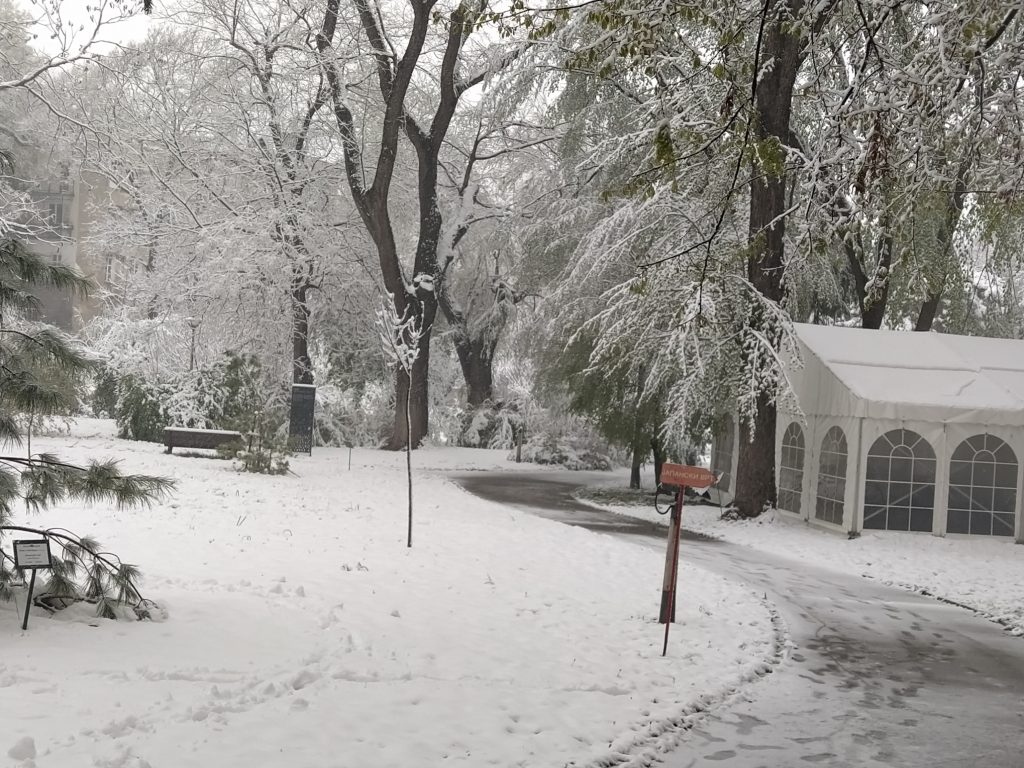
Our second day program dedicated to methods to investigate drivers of zoosporic parasite infections and algal-parasites cultivation (micro and macro-algae, cyanobacteria) and conservation for culture collection, nevertheless started at time, with the great lecture given by Allena Gsell (NIOO-KNAW, Netherlands) on examples of biotic and abiotic drivers of host-parasite interactions. Serena Rasconi (INRAE, France) complemented set of lectures on drivers by comprehensive overview of analyses and R packages that can be used to investigate drivers of zoosporic parasites and Laura Garzoli (CNR-IRSA, Italy) shared experiences from culture collections providing clear and detailed lecture on how to build your own collection and how to manage it, giving also overview of EU infrastructures MIRRI, WFCC and ECCO. After lunch Alena (on site) and Serena (virtual) gave and interactive, fun and fruitful hands on session. Alena lead onsite participants through the process of designing and analyzing an experiment that assesses the influence of single or multiple environmental drivers on the host-parasite interaction. Serena proposed the participants a hands-on session to analyze their own dataset. Nobody was interested in such analyses and Serena joined the experiment design exercise. Attendants worked in groups and in the end shortly presented their work on posters; presentations were original and proved this way of work highly desirable in training schools and workshops as all groups provided great ideas for experimental setups.
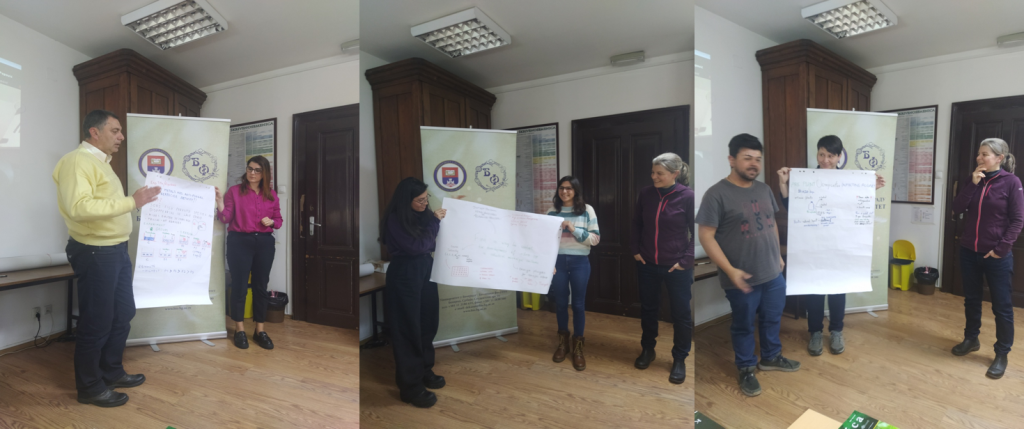
In the afternoon laboratory session, Jurica, Ana and Gabriel offered demonstration of skills of microalgae isolation and culturing techniques followed by training in isolation by micromanipulation and counting techniques. After the laboratory, Laura Garzoli chaired the final round table on strategies for culture collection management of zoosporic parasites + linking ParAqua to EU culture collections and infrastructures. During the round table we had fruitful debate of both onsite and virtual participants, finally concluding that we had great time together and learned a lot about the isolation & drivers as well as tackled yet under surveyed topic of importance of zoosporic parasites cultivation and conservation for culture collections. Among both trainers and trainees we had representatives from industry sector, which significantly contributed to widening our perspectives by getting wider overview of possible approaches to the problematic and we all benefited from intersector debates and fruitful discussions.

We said goodbye on 4th April at 18:00h, yet we have to express admiration to the “toughest” of us who had the second in a row night-out in Belgrade, despite snow and quite active 2 days of training school 🙂
Thank you all, you made our TS successful and meaningful.
Sincerely
Ivana
